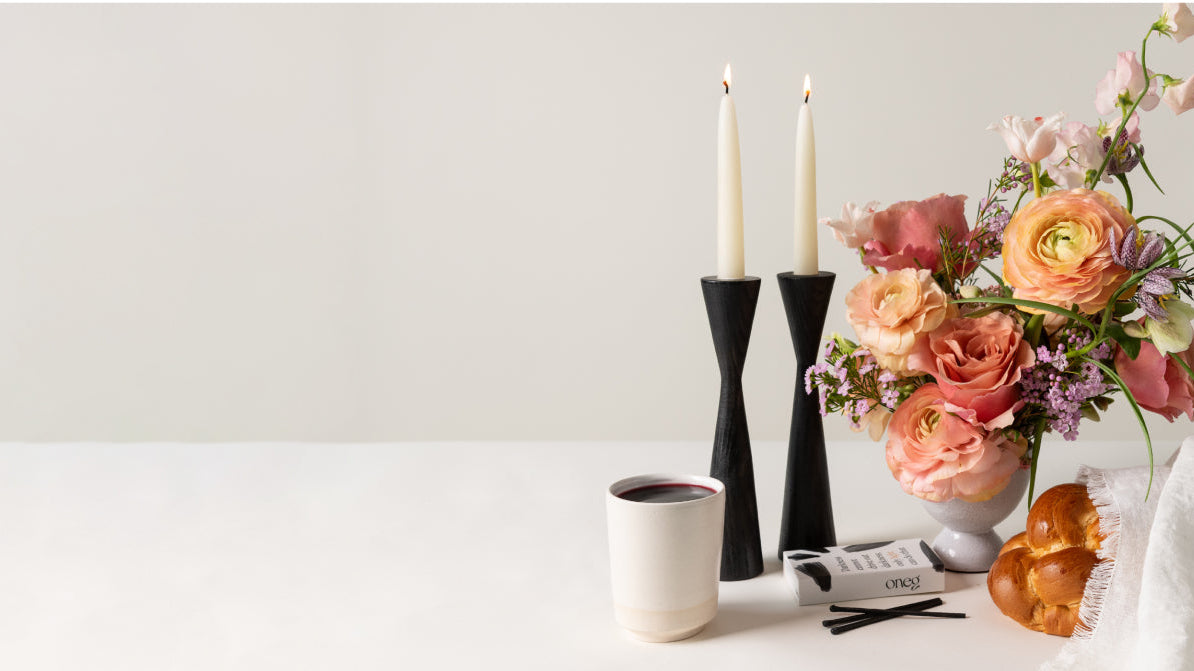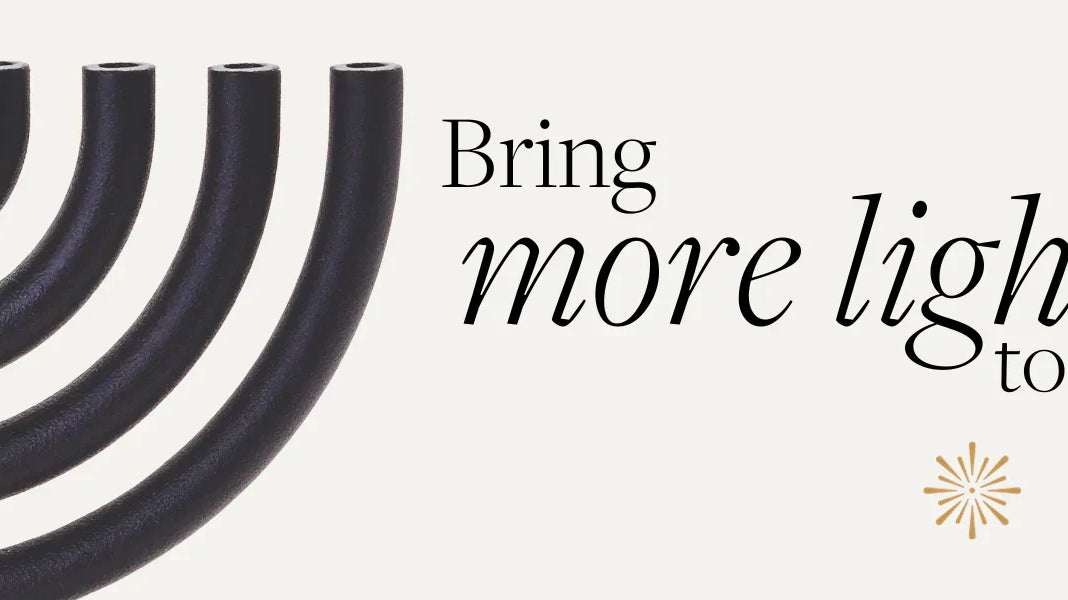If you’ve ever been wished “Shabbat shalom,” you might wonder what you’re supposed to say back, when it’s used, or what it really means beyond a friendly hello. I remember the first time a neighbor said it to me in the elevator on a Friday afternoon. I smiled, said it back, and then went home to look it up. Here’s the warm, simple meaning behind the phrase and how to make it part of your week.
Is “Shabbat shalom” just a greeting?
Short answer: it’s a blessing. “Shabbat shalom” means “a peaceful Sabbath.” It’s a wish that your day of rest feels calm, whole, and restorative. People often say it from Friday afternoon through Saturday night- or even as early as Wednesday night!
What “Shabbat” means
Shabbat is the weekly day of rest in Jewish life, beginning at sundown on Friday and ending after nightfall on Saturday. The heart of Shabbat is pausing from work, gathering with loved ones, and noticing what’s good. Lighting candles, blessing wine and bread, and sharing a meal are classic traditions that help mark the change from weekday to sacred time.
What “shalom” means
“Shalom” is often translated as peace, but it also carries a sense of wholeness and completeness. It’s not just the absence of stress. It’s the presence of harmony in your home, your relationships, and your own breath. When someone says “shalom,” they’re wishing you a kind of grounded, steady well-being.
Put together: the meaning of “Shabbat shalom”
Combine the two and you get a gentle weekly blessing: may your Sabbath be peaceful and whole. It’s a small phrase with a big hope for your body, your home, and your community. It’s also a reminder that we don’t have to earn rest. We simply welcome it.
When people say it
You’ll hear “Shabbat shalom” in many settings: at the market as Friday winds down, in synagogue, over text threads making dinner plans, even in emails sent before the weekend. It’s most common from Friday afternoon until Shabbat ends on Saturday night, after Havdalah.
How to respond
The easiest reply is to mirror it back with a smile: “Shabbat shalom.” You might also hear or use “Good Shabbos,” an Ashkenazi English-Yiddish version with the same intent.
There’s no test here. If you say it warmly, you’re doing it right.
Pronunciation and spelling
In Hebrew it’s שַׁבָּת שָׁלוֹם. A simple way to say it:
-
Shabbat: shah-BAHT
-
Shalom: shah-LOHM
You’ll see “Shabbat Shalom” or “Shabbat shalom” in English. Both are fine. Some families say “Good Shabbos,” especially in Yiddish-speaking communities.
Why this phrase feels so comforting
For many of us, the week moves fast. “Shabbat shalom” signals a soft landing. It tells your brain, your body, and your home that you’re allowed to exhale. The table gets cleared of laptops. Candles glow. Kids get wiggly with excitement. Friends stop by. That little greeting is a doorway into a different pace.
Simple ways to bring “Shabbat shalom” into your home
You don’t need to know every prayer to get started. Try one or two ideas and see what feels good.
-
Light candles at sundown and take a slow breath before you speak.
-
Share a short gratitude around the table. One sentence is enough.
-
Put phones in a basket for dinner so conversation gets your full attention.
-
Bless bread and wine or grape juice, or simply toast to the week you just lived.
-
Set your table with intention. A cloth, flowers, or a favorite bowl can change the mood. If you want inspiration, we put together a friendly guide: How to set your table for Shabbat.
If you’d like a ready-to-go setup, our community loves the curated pieces in the Oneg Shabbat Box. It’s intentionally simple so Shabbat feels doable, even on a busy week.
Related greetings you’ll hear
-
Erev Shabbat shalom: said Friday afternoon or evening, “a peaceful eve of Shabbat.”
-
Good Shabbos: Yiddish-influenced English for “Shabbat shalom.”
-
Shavua tov: said on Saturday night after Havdalah, “a good week” ahead.
Use whatever feels natural. The spirit is the same.
A quick note on texts and emails
Many of us send “Shabbat shalom” in group chats before dinner or sign off a Friday work email that way. It’s a polite, warm way to wish colleagues and friends well for the weekend. If you’re corresponding earlier in the week, “Shabbat shalom” can still be kind, just know it’s most traditional as Shabbat approaches.
Why it matters to us at Oneg
We built Oneg because we wanted Shabbat to feel approachable at home. The words “Shabbat shalom” remind us that connection matters more than perfection. If the soup is a little salty or the kids are playing under the table, you still made sacred time. That’s the win.
Frequently Asked Questions
Is it appropriate for non-Jewish friends to say “Shabbat shalom”?
Yes!!! It’s a warm, respectful wish for a peaceful Sabbath.
What do I say after Shabbat is over?
“Shavua tov,” which means “a good week.” It’s a hopeful send-off into Sunday.
Is “Good Shabbos” different from “Shabbat shalom”?
Meaning is the same. “Good Shabbos” reflects a Yiddish influence. “Shabbat shalom” is Hebrew.
Do I need to do every ritual to say it?
No. The blessing stands on its own. Any level of practice can use it.
Conclusion
“Shabbat shalom” is a small phrase with a generous heart. It’s permission to pause, to gather, and to feel whole for a day. If you’re setting up your home for Friday night, explore the simple pieces in our Shabbat Box or browse thoughtful gift sets for hosts and friends. However you begin, we’re cheering you on for a peaceful, beautiful Shabbat.





